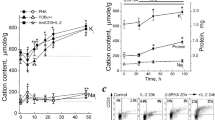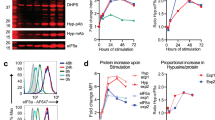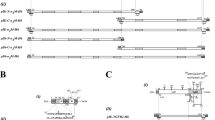Abstract
THE stimulation of protein synthesis that accompanies the activation of peripheral blood lymphocytes by phytohaemagglutinin (PHA) has been shown to be due largely to an increase in the rate of initiation of protein synthesis1. Such an increase could result from either an increase in the availability of initiation factors or of mRNA. This problem can be approached most directly by comparing the ability of cell-free protein synthesising systems from stimulated and unstimulated lymphocytes to form initiation complexes with 35S-methionyl-tRNAfMet. Such studies in reticulocytes have shown that the limitation of initiation occurring during haemin deprivation is accompanied by a marked reduction in the number of methionyl-tRNA-40S ribosomal subunit complexes present, and enabled the elucidation of the mechanisms involved2,3. We show here that the binding of 35S-methionyl-tRNAfMet to both 40S subunits and 80S ribosomes is increased after activation of lymphocytes by PHA. These differences can be overcome by the addition of initiation factors from reticulocyte ribosomes, but not by the addition of exogenous globin mRNA.
This is a preview of subscription content, access via your institution
Access options
Subscribe to this journal
Receive 51 print issues and online access
$199.00 per year
only $3.90 per issue
Buy this article
- Purchase on Springer Link
- Instant access to full article PDF
Prices may be subject to local taxes which are calculated during checkout
Similar content being viewed by others
References
Kay, J. E., Ahern, T., and Atkins, M., Biochim. biophys. Acta, 247, 322 (1971).
Legon, S., Jackson, R. J., and Hunt, T., Nature new Biol., 241, 150 (1973).
Balkow, K., Mizuno, S., and Rabinowitz, M., Biochem. biophys. Res. Commun., 54, 315 (1973).
Gupta, N. K., Chatterjee, N. K., Bose, K. K., Bhanduri, S., and Chung, A., J. molec. Biol., 54, 145 (1970).
Sampson, J., Mathews, M. B., Osborn, M., and Borghetti, A. F., Biochemistry, 11, 3636 (1972).
Aviv, H., and Leder, P., Proc. natn. Acad. Sci. U.S.A., 69, 1408 (1972).
Schreier, M. H., and Staehelin, T., J. molec. Biol., 73, 329 (1973).
Ahern, T., and Kay, J. E., Biochim. biophys. Acta. 331, 91 (1973).
Grollman, A. P., and Stewart, M. L., Proc. natn. Acad. Sci. U.S.A., 61, 719 (1968).
Hunt, T., Biochem. Soc. Transact. (in the press).
Zasloff, M., J. molec. Biol., 76, 445 (1973).
Darnbrough, C., Legon, S., Hunt, T., and Jackson, R. J., J. molec. Biol., 76, 379 (1973).
Author information
Authors and Affiliations
Rights and permissions
About this article
Cite this article
AHERN, T., SAMPSON, J. & KAY, J. Initiation of protein synthesis during lymphocyte stimulation. Nature 248, 519–521 (1974). https://doi.org/10.1038/248519a0
Received:
Issue Date:
DOI: https://doi.org/10.1038/248519a0
This article is cited by
-
Protein synthesis in resting and stimulated human lymphocytes
Molecular and Cellular Biochemistry (1977)
Comments
By submitting a comment you agree to abide by our Terms and Community Guidelines. If you find something abusive or that does not comply with our terms or guidelines please flag it as inappropriate.



